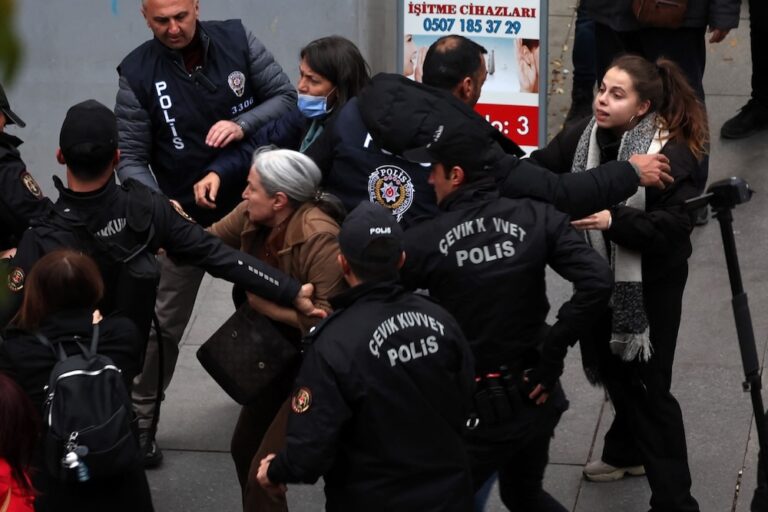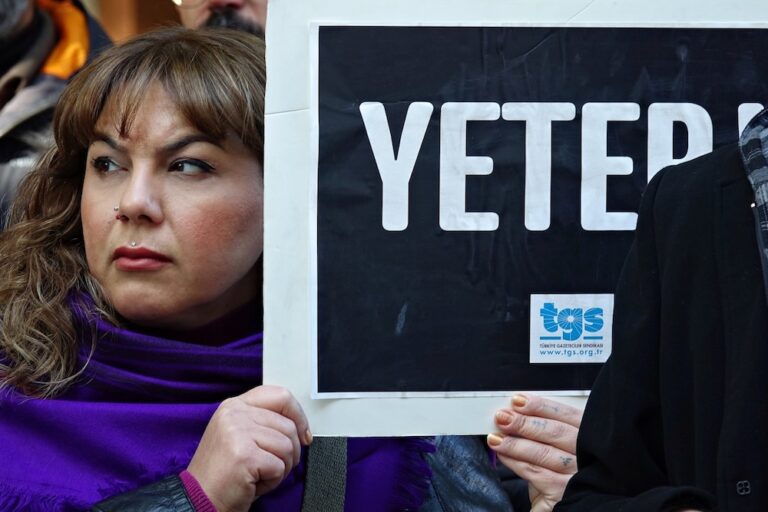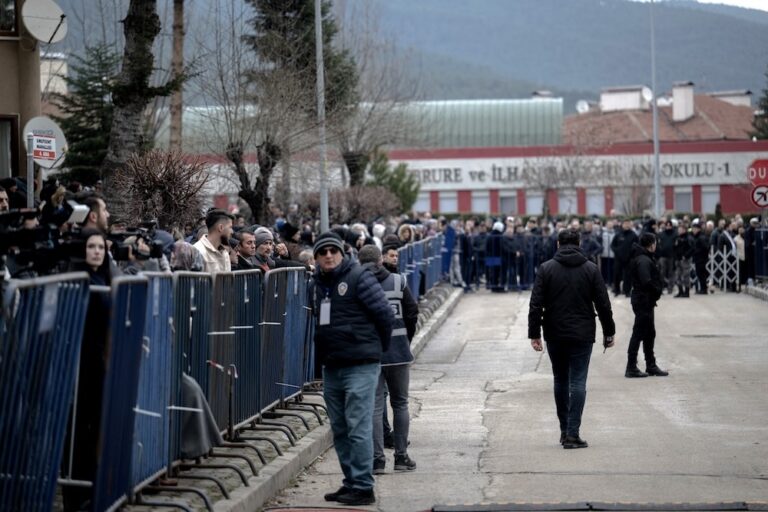(CPJ/IFEX) – CPJ is outraged by the criminal conviction of journalist Oral Calislar, a columnist for the daily “Cumhurriyet”. **Updates IFEX alerts of 20 May 1999 and 24 July 1998** On 18 May 1999, Calislar was convicted of disseminating “separatist propaganda” under Article 8 of the Anti-Terror Law and sentenced to 13 months in prison […]
(CPJ/IFEX) – CPJ is outraged by the criminal conviction of journalist Oral
Calislar, a columnist for the daily “Cumhurriyet”.
**Updates IFEX alerts of 20 May 1999 and 24 July 1998**
On 18 May 1999, Calislar was convicted of disseminating “separatist
propaganda” under Article 8 of the Anti-Terror Law and sentenced to 13
months in prison by the Istanbul State Security Court. The charge against
Calislar stemmed from a 1993 book he wrote, titled “The Kurdish Problem with
Ocalan and Burkay”. The book contains interviews -originally published in
“Cumhurriyet” in June and July 1993 – with Kemal Burkay, head of the
Kurdistan Socialist Party, and Abdullah Ocalan, leader of the outlawed
Kurdistan Workers’ Party, who is now awaiting trial in Turkey on treason
charges.
After the book’s release, Calislar was charged under Article 8 and convicted
of the charge in 1995. He was sentenced to two years in prison and fined 250
million TL (approx. US$630). However, while the case was under appeal, the
Turkish Parliament approved amendments to Article 8, resulting in the
nullification of the conviction.
In 1996, the State Security Court arraigned Calislar on charges of violating
Article 6 of the Anti-Terror Law (publishing the statements of a terrorist
organization), again citing the book as the principle evidence. He was
convicted of the charge, and fined 5 million TL (approx. US$12). But on 5
March 1998, the Court of Cassation quashed the 1996 ruling, stating that
Calislar’s book instead constituted “separatist propaganda,” and ordered a
retrial under Article 8, leading ultimately to the 18 May sentence. Calislar
intends to file an appeal against the ruling.
Calislar’s prosecution and conviction constitute flagrant violations of the
norms for free expression under international law. Article 19 of the
Universal Declaration of Human Rights guarantees journalists the right to
“seek, receive, and impart information and ideas through any media and
regardless of frontiers.”
Nearly two years ago, Turkish government officials – including Prime
Minister Bulent Ecevit – promised a delegation from CPJ that they would work
to end state restrictions on the press and to implement comprehensive legal
reforms to end the criminalisation of journalism in Turkey. On July 14,
1997, then-Prime Minister Mesut Yilmaz told the delegation that the jailing
of journalists and other restrictions on press freedom “were explained away
in the past by the fight against terrorism. That was unacceptable then, and
it is unacceptable now.” Mr. Yilmaz added that journalists and others should
no longer be prosecuted on the basis of “their thoughts and their opinions.”
Regrettably, since that meeting 22 months ago, the prosecution and
imprisonment of journalists in Turkey have continued and the government’s
promise of reform failed to materialize.
As of 1 January 1999, 27 journalists were in prison in Turkey for the
expression of opinion or for their association with pro-Kurdish and leftist
publications, and dozens more are believed to face imprisonment in cases
still pending before the courts.
In July 1997, Prime Minister Ecevit told CPJ’s delegation that, as a former
journalist who had been imprisoned for his work, he “consider[s] freedom of
expression as a vital component of democracy.”
Recommended Action
Send appeals to the prime minister:
freedom
of expression as a vital component of democracy, by adopting the following
recommendations aimed at bringing Turkey’s practices in accordance with
international standards:
examine all possible legal options to rescind the sentence against Oral
Calislar and initiate parliamentary efforts to dismiss charges against
journalists which are now pending in court;
immediately introduce meaningful reforms designed to abolish laws that
criminalize free expression, and implement measures to secure the release
from prison of journalists jailed for journalistic work
Appeals To
His Excellency Bulent Ecevit
Prime Minister
Basbakanlik
06573 Ankara, Turkey
Fax: +90 312 417 0476
E-mail: ddlbsl@tccb.gov.tr
Please copy appeals to the source if possible.


